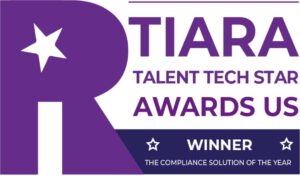Like many things in the business landscape these days, employment regulations are ever-changing. Government agencies and legislative bodies are constantly trying to strike the right balance between supporting and protecting employees and allowing companies to grow and flourish.
Often, as the half-year mark approaches, HR professionals must get ready for another round of updates and changes that could impact hiring and recruitment compliance.
Laws will affect a wide range of functions, from job postings to criminal background checks and minimum wage and workforce reporting. If you’re wondering what regulatory curveballs you need to get ready for this summer, you’ve come to the right place.
Equal Employment Opportunity (EEO) Reporting
Each year, the Equal Opportunity Employment Commission (EEOC) requires private employers with 100 or more employees and government contractors with 50+ employees to submit the EEO-1 report, a mandatory survey of workforce demographic data.
The EEOC is required to submit its reporting instruction booklet to the Office of Information and Regulatory Affairs (OIRA), a division within the Office of Management and Budget (OMB).
If this year’s instructions are officially approved, employers will notice that the voluntary option to report non-binary employees has been removed in an effort to comply with Executive Order 14168. As a result, sex must be reported as either “male” or “female.”
This year, the EEOC plans to continue using the racial and ethnic categories that were revised in 2024, which eliminate any distinction made between race and ethnicity, add Middle Eastern or North African (MENA) as a racial category, and replaces the “two or more races” option with a more robust selection of detailed subcategories.
To comply with these new requirements, employers should update any voluntary self-disclosure forms to align with the EEOC’s new racial categories. Additionally, it’s important to ensure your systems can capture this detailed data to meet reporting obligations. Finally, review hiring practices to ensure they are inclusive and non-discriminatory.
Minimum Wage Laws and Salary Transparency Requirements
21 states have already increased their minimum wage rates, effective January 2025. However, there are more updates to come. Florida plans to increase its minimum wage to $14.00 per hour on September 30 as part of a multi-year plan to push the minimum wage to at least $15.00 by 2026.
Oregon also plans to increase the standard minimum wage to $15.05 this July, with increases to $16.30 and $14.05 in Portland Metro and nonurban counties, respectively.
Pay transparency has also been top of mind for some state legislators. While Illinois and Minnesota updated their books in early 2025, the following states have wage transparency rules that will take effect this summer, including:
- New Jersey: Effective June 1, 2025, employers with 10+ employees must disclose salary ranges in job postings for new hires and promotions
- Vermont: Effective July 1, 2025, employers with 5+ employees must include compensation ranges in all job postings
- Massachusetts: Effective October 29, 2025, employers with 25+ employees must disclose pay ranges in job postings and to employees
If your state has revised minimum wage or pay transparency hiring and recruitment compliance, make sure to update your salary ranges to reflect new laws and change your job postings accordingly.
If you need to inform employees of the salary range for their role, it’s a good idea to begin preparing that communication. Make sure to account for any regional variations, such as those in Oregon.
Criminal Background Check Regulations
Virginia will introduce automatic sealing for misdemeanor convictions (such as petit larceny or disorderly conduct) after seven years if there is no subsequent conviction. This law was set to take effect starting July 1, 2025, but employers have been given one additional year to comply.
Some states, such as California, have also introduced “fair chance” laws that require employers to wait until after a conditional offer has been extended to conduct a background check.
If the employer intends to deny the applicant, it must conduct an individualized assessment looking at the nature of the crime, the time lapsed since the conviction, and the job duties associated with the role.
Be aware that some state-based hiring and recruitment compliance rules require employers to notify applicants of background checks and what information has been collected.
It’s imperative that HR teams review all background check processes to ensure proper timing and notification in offer letters or job descriptions. You should also consider your policies surrounding the type of offenses that remove applicants from consideration for specific roles. If you work in a state with a “ban the box” law, make sure your application forms comply with those regulations.
Stay Up to Date and in Compliance
As an HR professional, nothing is more important than staying up to date with new hiring and recruitment compliance requirements. To keep penalties at bay, take some time before summer arrives to review and update your recruitment strategies and align them with current regulations.
Implementing inclusive and legally compliant hiring processes not only keeps you out of trouble with regulatory agencies but also builds trust with candidates and employees.
Fortunately, an automated compliance platform like VirgilHR can help you stay up to date and understand how legal changes apply to your business. Schedule a demo today to see how we can streamline your HR function’s path to total compliance.
Sources:
3. https://www.state.gov/wp-content/uploads/2021/01/2021-01-29-Notice-FL-Minimum-Wage-Increase.pdf
4. https://www.oregon.gov/boli/workers/Pages/minimum-wage-schedule.aspx
5. https://www.njleg.state.nj.us/bill-search/2024/S2310
7. https://malegislature.gov/Bills/193/H4890 8. https://law.lis.virginia.gov/vacode/title19.2/chapter23.2/section19.2-392.6/






